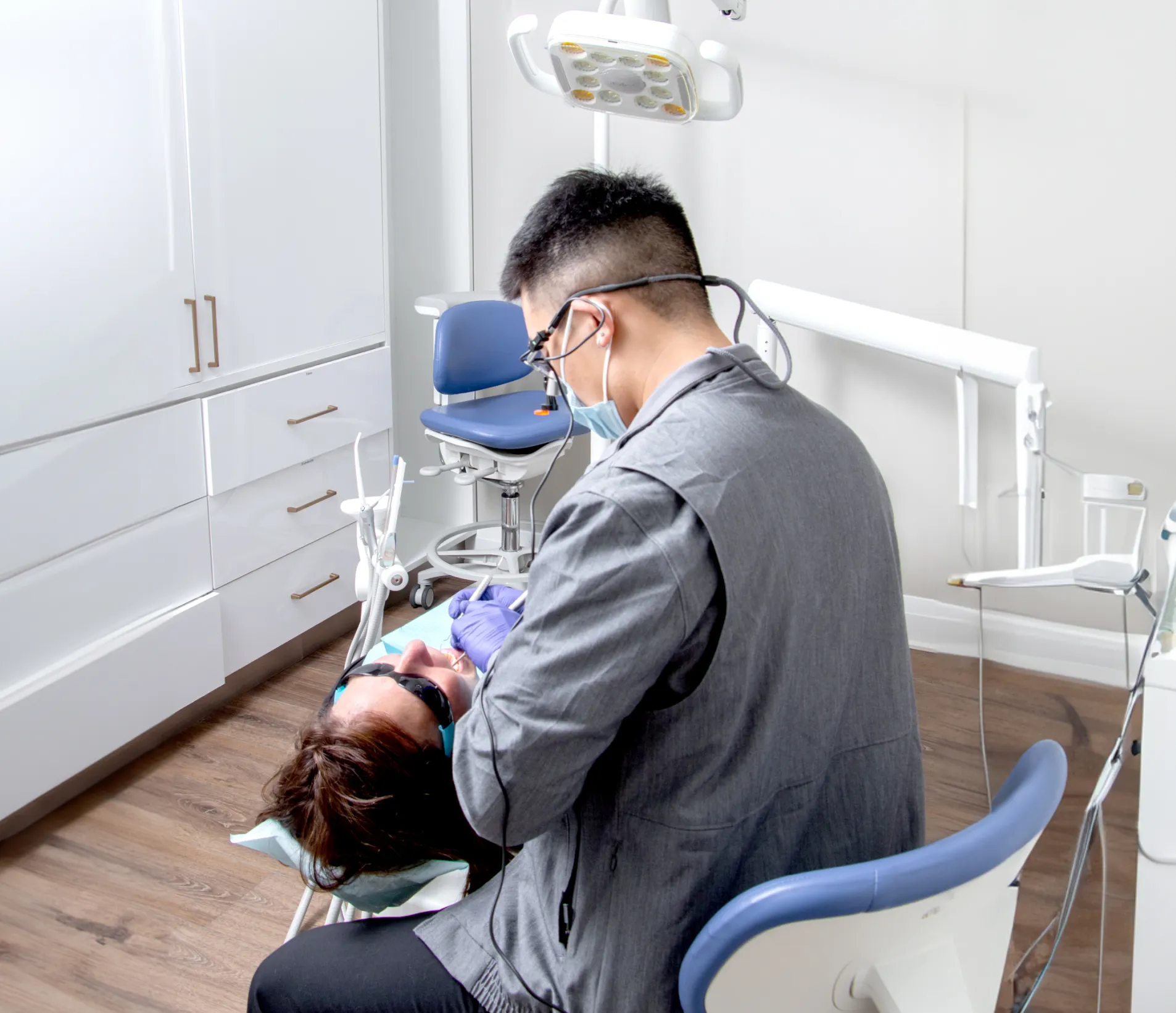.svg)
Oral cancer can affect anyone, and early detection is key to successful treatment and improved outcomes. Dr. Matthew Yoon and our caring team are dedicated to providing thorough oral cancer screenings to help detect potential issues early and ensure your oral health is in optimal condition.

Oral cancer includes cancers of the mouth, lips, tongue, cheeks, throat, and the soft tissues inside the mouth. It can develop without any noticeable symptoms in the early stages, making regular screenings essential for early detection. At Lansdowne Place Dental, we include oral cancer screenings as part of your routine dental check-up to ensure that any potential issues are detected early.
We use advanced screening techniques to examine your oral tissues and check for signs of abnormalities. Early detection significantly increases the chances of successful treatment, which is why we encourage all of our patients to schedule regular screenings as part of their preventive care.
During your routine dental visit, Dr. Yoon will perform a thorough examination of your mouth, lips, tongue, cheeks, and throat. We will look for any unusual signs or changes in the soft tissues, including:
We may also ask you about any lifestyle factors that could increase your risk of oral cancer, such as tobacco or alcohol use.
We utilize the latest technology and techniques to ensure that every area of your mouth is thoroughly examined. This may include:
Advanced screening tools: In some cases, additional technology may be used to detect early signs of cancer that aren’t visible to the naked eye.
If any suspicious areas are detected during the screening, Dr. Yoon will discuss further steps with you. This may include scheduling follow-up appointments or biopsies to determine whether further evaluation or treatment is needed. Most early-stage oral cancers are treatable when detected early, so prompt action is important.
During your screening, Dr. Yoon will also offer preventive advice to help lower your risk of developing oral cancer. This may include tips on smoking cessation, alcohol consumption, sun protection for your lips, and maintaining good oral hygiene.
Oral cancer refers to cancer that develops in the tissues of the mouth or throat. It can affect the lips, gums, tongue, cheeks, and other soft tissues. Early-stage oral cancer often has no symptoms, which is why regular screenings are important.
Oral cancer screenings are important because they can detect potential issues early when they are easier to treat. Catching oral cancer in its early stages significantly increases the chances of successful treatment and recovery.
We recommend having an oral cancer screening as part of your routine dental check-up, which is typically every 6 months. If you are at a higher risk of oral cancer due to lifestyle factors such as tobacco or alcohol use, or a family history of cancer, Dr. Yoon may recommend more frequent screenings.
No, oral cancer screenings are non-invasive and painless. The procedure involves a visual inspection of your mouth, tongue, and throat, as well as a gentle palpation of your neck and oral tissues. It’s a simple and quick process that can be performed during your regular dental visit.
If any suspicious areas are found, Dr. Yoon will discuss further diagnostic tests with you. In most cases, this involves a biopsy or referral to a specialist for further evaluation. Early detection is crucial for successful treatment, so we will guide you through the necessary steps.